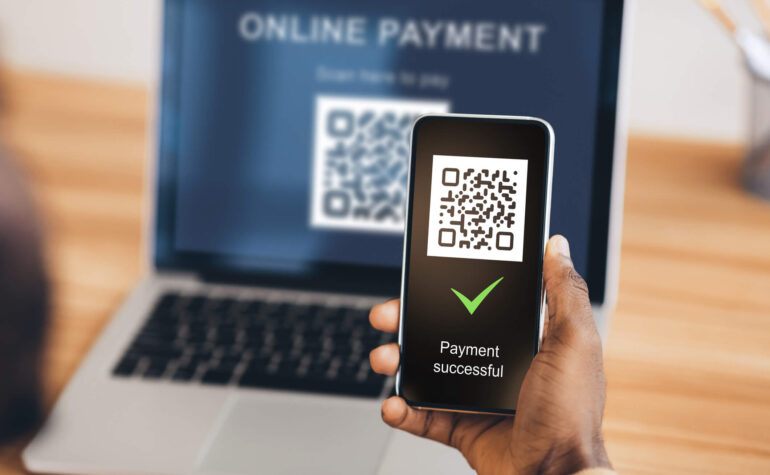Best Credit Card Processing Solutions Tailored for Every Industry

By admin April 21, 2024
In today’s digital age, technology has revolutionized the way businesses operate. One such innovation that has gained significant popularity is mobile payment systems. These systems offer small businesses a convenient and efficient way to accept payments from customers using their smartphones or tablets. With the rise of mobile payment systems, small businesses can now enjoy a range of advantages that can help them streamline their operations, enhance customer experiences, and ultimately boost their bottom line.
Introduction to Mobile Payment Systems
Mobile payment systems, also known as mobile wallets or digital wallets, are applications that allow users to make payments using their mobile devices. These systems securely store payment information, such as credit card details or bank account information, and enable users to make purchases by simply tapping their device or scanning a QR code. Mobile payment systems have gained popularity due to their convenience, speed, and security.
What are Mobile Payment Systems?

Mobile payment systems are digital platforms that enable users to make payments using their smartphones or tablets. These systems securely store payment information, eliminating the need for physical credit cards or cash. Users can simply open the mobile payment app, select the payment method, and complete the transaction with a few taps or scans. Mobile payment systems can be used for both online and in-person transactions, making them versatile and adaptable to various business models.
The Rise of Mobile Payment Systems in Small Businesses
In recent years, mobile payment systems have seen a significant rise in adoption among small businesses. According to a survey conducted by the Federal Reserve, 75% of small businesses in the United States accept mobile payments. This trend can be attributed to the increasing popularity of smartphones and the growing demand for contactless payment options.
Small businesses have recognized the benefits of mobile payment systems, such as increased convenience, improved customer experiences, and cost savings. By embracing mobile payment systems, small businesses can stay competitive in a rapidly evolving digital landscape.
Advantages of Mobile Payment Systems for Small Businesses
Mobile payment systems offer a range of advantages for small businesses. Let’s explore some of the key benefits:
Increased Convenience and Efficiency
One of the primary advantages of mobile payment systems is the increased convenience and efficiency they offer. With mobile payment systems, small businesses can accept payments anytime, anywhere, without the need for traditional point-of-sale systems or cash registers. This flexibility allows businesses to serve customers on the go, at events, or even in remote locations.
Mobile payment systems also streamline the checkout process, reducing waiting times and improving overall customer satisfaction. Customers can simply tap their devices or scan a QR code, eliminating the need to fumble for cash or credit cards. This seamless payment experience can significantly enhance the overall customer experience and encourage repeat business.
Enhanced Customer Experience
Mobile payment systems provide small businesses with an opportunity to enhance the customer experience. By offering a convenient and modern payment option, businesses can attract tech-savvy customers who prefer digital transactions over traditional methods. This can help businesses stay relevant and appeal to a wider customer base.
Additionally, mobile payment systems often offer loyalty programs and rewards, allowing businesses to incentivize customer loyalty and encourage repeat purchases. These programs can be easily integrated into the mobile payment app, providing a seamless experience for both businesses and customers.
Cost Savings and Reduced Transaction Fees
Implementing mobile payment systems can also lead to cost savings for small businesses. Traditional point-of-sale systems often require significant upfront investments in hardware and software. In contrast, many mobile payment systems can work with existing smartphones or tablets, eliminating the need for additional hardware expenses.
Furthermore, mobile payment systems often come with lower transaction fees compared to traditional payment methods. This can result in significant savings for small businesses, especially those with high transaction volumes. By reducing transaction fees, businesses can allocate more resources to other areas of their operations, such as marketing or product development.
Improved Security and Fraud Prevention

Security is a top concern for small businesses when it comes to accepting payments. Mobile payment systems address these concerns by implementing robust security measures to protect sensitive customer information. These systems use encryption technology to secure payment data, making it difficult for hackers to intercept or access.
Additionally, mobile payment systems often offer additional security features, such as biometric authentication or tokenization. Biometric authentication, such as fingerprint or facial recognition, adds an extra layer of security by ensuring that only authorized users can access the payment app. Tokenization replaces sensitive payment information with unique tokens, further reducing the risk of fraud or data breaches.
Implementing Mobile Payment Systems in Small Businesses
While the benefits of mobile payment systems are clear, implementing them in small businesses requires careful planning and consideration. Let’s explore some key steps to successfully implement mobile payment systems:
Choosing the Right Mobile Payment System
The first step in implementing mobile payment systems is to choose the right system for your business. There are numerous mobile payment providers available, each offering different features and pricing structures. It’s essential to evaluate your business needs, such as transaction volume, integration requirements, and customer preferences, before selecting a mobile payment system.
Consider factors such as ease of use, compatibility with your existing infrastructure, and customer support when choosing a mobile payment system. It’s also important to review the security measures implemented by the provider to ensure the safety of your customers’ payment information.
Integrating Mobile Payment Systems with Existing Infrastructure
Once you have chosen a mobile payment system, the next step is to integrate it with your existing infrastructure. This may involve updating your point-of-sale systems, website, or mobile app to support mobile payments. It’s crucial to work closely with your IT team or service provider to ensure a seamless integration process.
Integrating mobile payment systems with your existing infrastructure allows for a unified customer experience across different channels. Customers should be able to make payments using the mobile payment app, whether they are shopping online, in-store, or through your mobile app.
Training Employees and Educating Customers

Implementing mobile payment systems requires training your employees on how to use the system and educating your customers on the benefits and process of mobile payments. It’s important to provide comprehensive training to your staff to ensure they are comfortable using the mobile payment system and can assist customers when needed.
Additionally, educating your customers about mobile payments can help increase adoption and usage. Consider creating informational materials, such as brochures or posters, to explain the benefits of mobile payments and how to use the system. You can also offer incentives, such as discounts or exclusive offers, to encourage customers to try mobile payments.
FAQs
Despite the numerous benefits of mobile payment systems, small businesses may have concerns or questions about their implementation. Let’s address some common concerns and FAQs:
Q.1: Are Mobile Payment Systems Secure?
Security is a top concern for businesses and customers when it comes to mobile payments. However, mobile payment systems have implemented robust security measures to protect sensitive payment information. These systems use encryption technology, tokenization, and biometric authentication to ensure the security of transactions. It’s important to choose a reputable mobile payment provider that prioritizes security and regularly updates their systems to address emerging threats.
Q.2: What Happens if the Network Goes Down?
Network reliability is another concern for businesses considering mobile payment systems. While network outages can occur, most mobile payment systems have offline capabilities that allow businesses to accept payments even when the network is down. These systems store payment information securely and process transactions once the network is restored. It’s important to choose a mobile payment system that offers reliable offline capabilities to minimize disruptions to your business operations.
Q.3: Can Mobile Payment Systems Integrate with Accounting Software?
Integrating mobile payment systems with accounting software is crucial for small businesses to streamline their financial processes. Many mobile payment systems offer integrations with popular accounting software, allowing businesses to automatically sync sales data, track revenue, and reconcile transactions. It’s important to choose a mobile payment system that supports integration with your preferred accounting software to ensure seamless financial management.
Q.4: How Can Small Businesses Handle Returns and Refunds?
Handling returns and refunds is an important consideration when implementing mobile payment systems. Most mobile payment systems offer features that allow businesses to process returns and issue refunds directly through the app. These systems can automatically update inventory levels and refund the payment to the customer’s original payment method. It’s important to familiarize yourself with the return and refund processes offered by your mobile payment system to ensure smooth operations and customer satisfaction.
Conclusion
In conclusion, mobile payment systems offer numerous benefits for small businesses. These systems provide increased convenience, efficiency, and enhanced customer experiences. By choosing the right mobile payment system, integrating it with existing infrastructure, and training employees and educating customers, small businesses can successfully implement mobile payment solutions.
Despite common concerns about security and network reliability, mobile payment systems have proven to be secure and reliable. With the ability to track sales, customer data, and reduce transaction fees, mobile payment systems are a valuable tool for small business success.
Leave a Reply